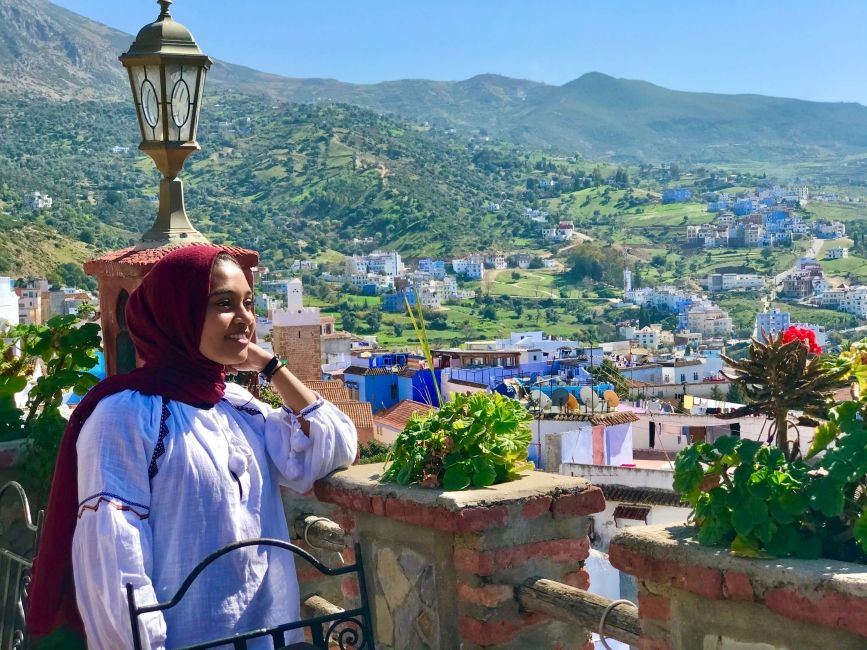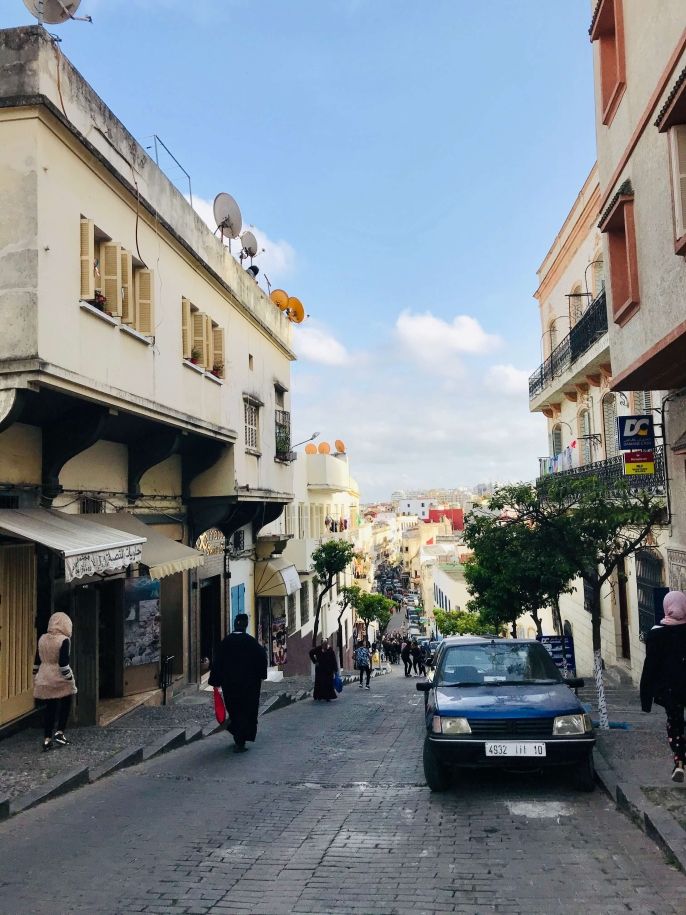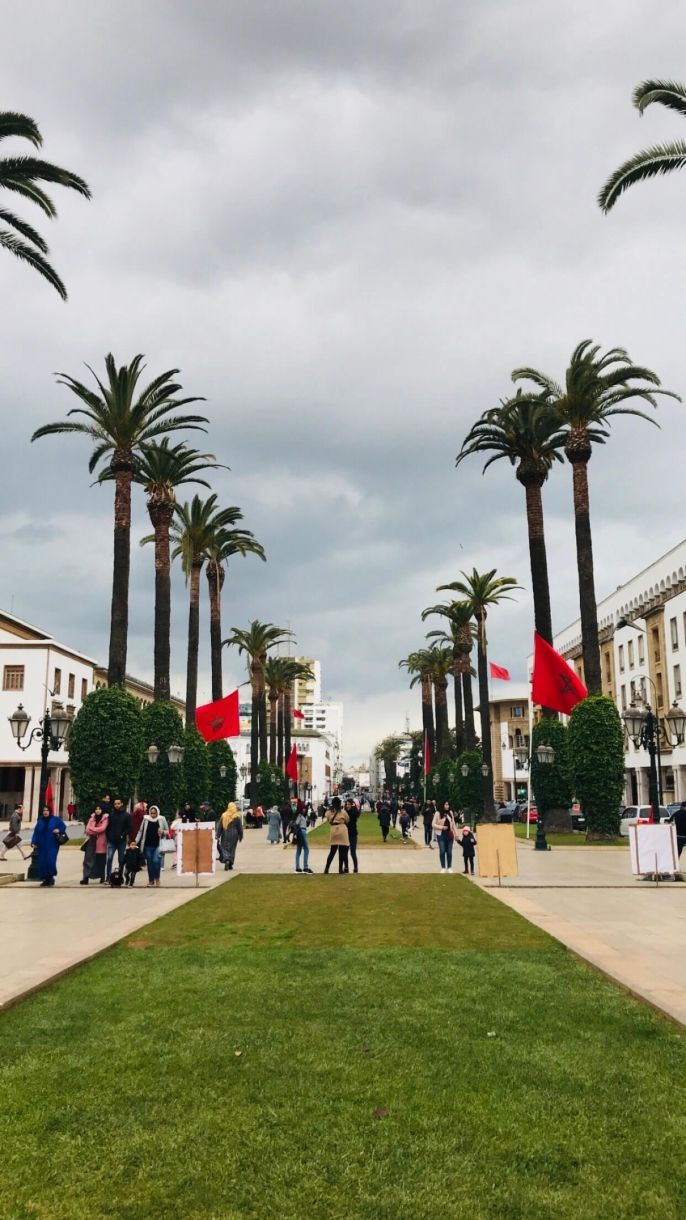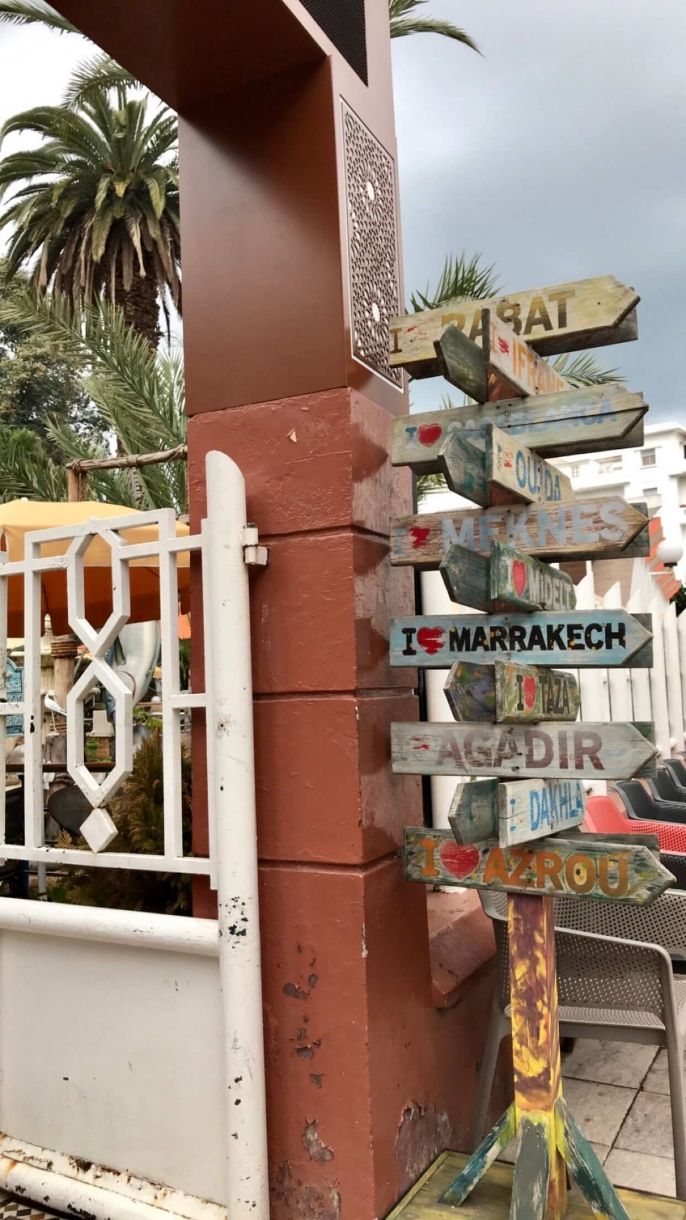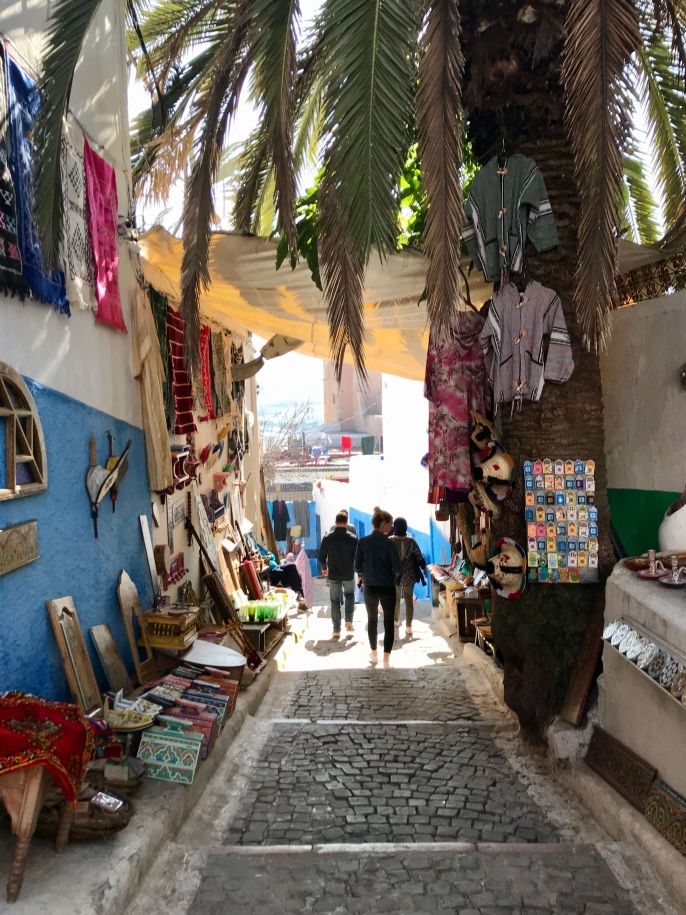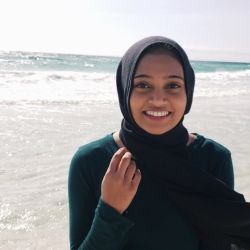Tourist? Student? Local?
As a study abroad student, I am chained to the labels of being a woman, a Muslim, a Sri Lankan, and a brown-skinned American. The cultural and religious expectations that I've encountered have followed me throughout my life.
“What would you do if you weren't afraid?” - Sheryl Sandberg
I came across this quote two years ago, before I started my study abroad journey. Since then, I have referred back to it to gain insightful inspiration. Studying abroad is a daunting experience. Unfortunately, the underlying problem that inputs additional stress to this experience is having to grow up in a cultural environment that restricts women from having a sense of individuality and allowing them to do something unique such as traveling to a foreign country without the presence of immediate family. Despite the intimidating thoughts and overcoming challenges, I am glad to say that my journey has begun.
New Beginnings
On January 19, 2020, I boarded a flight and landed in Morocco. Once I stepped foot on to the Moroccan soil, I realized that the experience felt surreal. I could not believe I was going to spend an entire semester in Morocco. The drive from the Casablanca airport to my host family’s home in L’Oceana, Rabat was quite interesting. I saw many people walking on the highway. I watched farmers and families from different neighborhoods play along the road. I noticed that little children were left to be on their own. There were also many haggard buildings and homes. As I continued to look through the window, I felt a sense of culture shock. I could not help but think about the words a friend said to me before I left: “Isn’t Morocco a third world country? Are you sure you want to live there?” Truth be told, I was terrified. Before coming to Morocco, I made sure to stay away from having any expectations. However, I came to the realization that I did not thoroughly think about how the journey of my day-to-day life would look like until May. The one-hour drive was filled with fearful thoughts. A part of me was ready to book the next flight home.
Facing my Fears
My first day in Rabat was filled with new experiences that I did not envision to have. I was able to meet new people, eat delicious food, and fill my heart with laughter through joyous and engaging conversations.
Before coming to Morocco, the only challenges I expected to face were regarding the program applications, convincing my parents to allow me to travel, being granted financial aid, and most importantly, packing my life into two suitcases. I had the perception that I would be assimilated into the culture due to Morocco being a Muslim majority country. The thought of being in a country that upholds my religious views felt comforting. This mindset gave assurance into believing that I would not face discomfort or challenges. The only factor that I was worried about was the language barrier. Unfortunately, there were many difficult layers that started to unleash as my journey in Morocco continued.
Story Time
Walking around the different communities and neighborhoods in Morocco felt like an out-of-body experience. I noticed that many Moroccans were not glued to their technology. Rather, they enjoy interpersonal and group communication. They would always say “Hi!” even if they did not personally know you.
I was very proud of myself when I hailed and took my first taxi alone to class. As I took a seat in the taxi, I greeted the sweet, elder Moroccan driver and told him my destination. “Salam, Agdal? Fi Avenue de France, qarib min Tram.” I thought this was the only phrase I needed to know to have limited conversation in Arabic as well as to get to the CIEE Study Center. However, the driver started to initiate a conversation in Darijah. Unfortunately, I could not understand him. Therefore, I responded by saying, “La athakalam al-Arabia, Asifa” which translates to “I do not speak Arabic, sorry.”
The driver nodded his head and continued to look ahead at the road. However, I noticed that he had a confused expression on his face. He was probably thinking, “Why is she telling me she does not speak Arabic in Arabic?” While being in Morocco, I have perfected this phrase and have used it countless amount of times. Although many people realize I am a foreign student, I’m pretty sure I have disappointed every Moroccan I've said this to. As a brown-skinned hijabi, I do not look like a “typical” foreigner. So despite the pre-established expectations, they have of me due to my outer appearance, I can not say I was one of them.
Growth
As I wrap up my sixth week in Morocco, I realize how far I’ve come. Every day, the language barrier decreases as I build my skills and practice speaking Arabic with the locals. Although there were many obstacles I faced prior to coming here, I am grateful for the opportunity to break down those barriers and pursue my goals as a student. I still expect the stereotypical labels I am surrounded by to continuously shape my experiences in Morocco. However, it is a part of the process and I plan on embracing and redefining them.
Related Posts

Eat, Drink, Explore: Rabat
BEST FOOD TO EAT IN RABAT Not only is couscous the national dish of Morocco – it also originated there! You’ll find this tasty grain throughout much of North Africa... keep reading
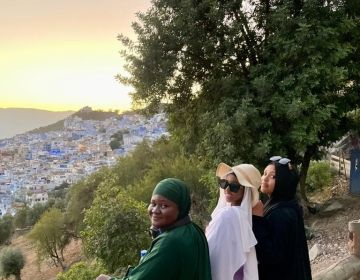
A Weekend Getaway to the Blue City
A breathtaking blue oasis nestled in the Rif Mountains of Morocco, Chefchaouen is a picturesque town renowned for its vivid blue-painted buildings and rich cultural heritage. This past weekend, the... keep reading
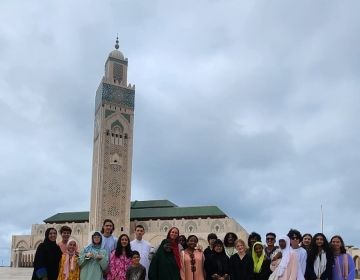
A Visit to Casablanca's Hassan II Mosque
Our Language and Culture students wrapped up this week with a visit to Casablanca’s Hassan II Mosque. As the third largest mosque in the world, and largest in Africa, Hassan... keep reading

